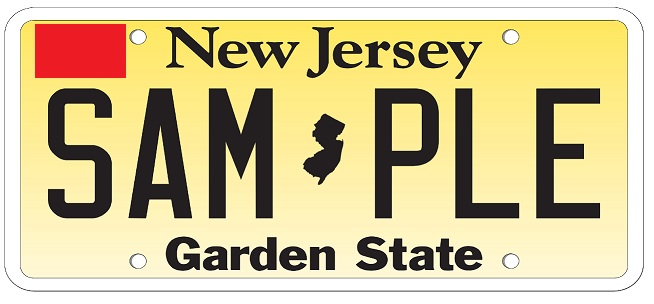
Have Red Decals Reduced Crashes For Teen Drivers? – It Depends!
July 1, 2015
A newly published study on the use of red decals by teen drivers in New Jersey seems to contradict a study published last year but that depends on the type of license the teen driver holds.
In 2010, New Jersey enacted a law requiring that teen drivers display a red decal in the upper left hand corner of the vehicle license plate. The law was designed to allow law enforcement officers to identify newly licensed teen drivers more easily in order to enforce compliance with the state’s graduated driver license laws (GDL).
Under the New Jersey GDL laws, there are two different permit phases that require a new driver to practice with an accompanying adult driver for at least six months before applying for a probationary license. A teen with a probationary license must drive unsupervised for at least one year and be at least 18 years of age in order to qualify for a basic driver’s license
Under the GDL laws, teen drivers with either a permit or a probationary license:
- must be accompanied by a licensed driver over the age of 21 during the permit phase,
- are prohibited from driving between the hours of 11:01 p.m. and 5:00 a.m.,
- are prohibited from using hand-held or hands-free cell phones or any other electronic devices.,
- are limited to the number of passengers they can carry, and
- must wear seat belts.
The new study published in the journal Injury Prevention attempted to find out if the red decals had any effect on the crash rates of teen drivers during the permit phase. Just like the earlier study, using driver license information and the police reported crash database, they did a comparison of teen crash rates during the four years before the law went into effect with the crash rate in the two years after enactment of the law.
The surprise was that there seemed to be no difference in the crash rate for permitted drivers before or after the law took effect.
The previous study found an overall reduction of 9.5 percent in crash rates for teens after the law went into effect.
So, why the difference? The new study looked strictly at the crash rate for permitted drivers. Drivers with a permit must be accompanied at all times by a supervising driver over the age of 21. Under New Jersey law, if a permitted driver commits a traffic offense, both the teen driver and the supervising driver are held responsible.
The researchers feel that the reason the crash rate for permitted drivers didn’t change was that a permitted driver under the supervision of an adult driver is going to drive more carefully anyway, whether or not a red decal is attached.
The real change to the crash rate was in unsupervised drivers during the probationary license phase. Those probationary drivers experienced a significant drop in crash rates after the requirement for red decals went into effect. Researchers feel the reason for the difference is that, unlike teen drivers in other states, probationary drivers in New Jersey tended to drive more carefully and were less likely to disobey the GDL laws because the red decals made them more visible to police.
Read more: Branding Teen Drivers As Newbies Doesn’t Prevent Crashes
